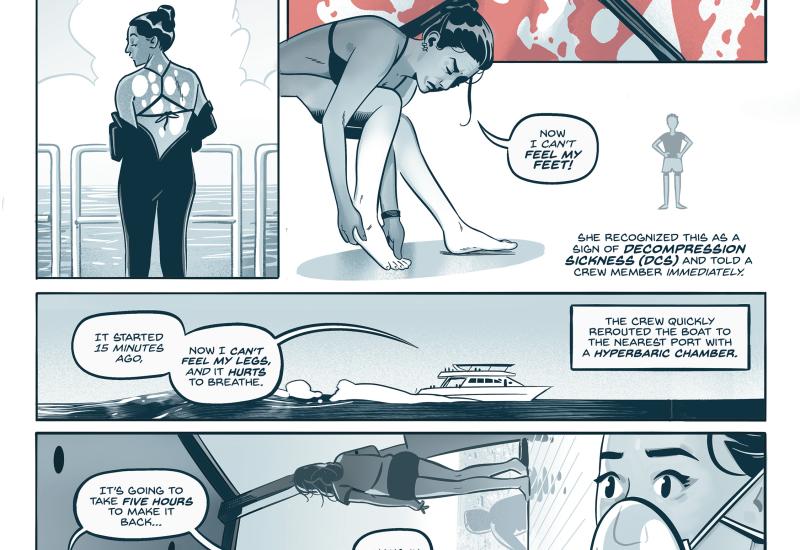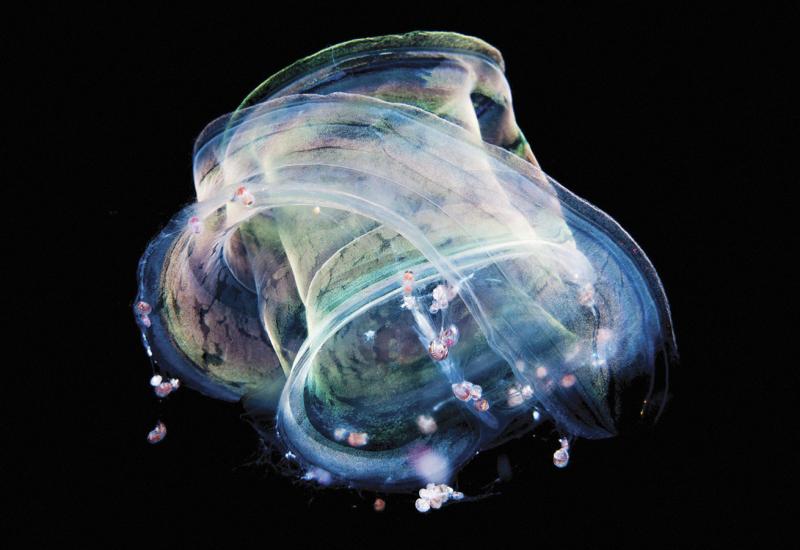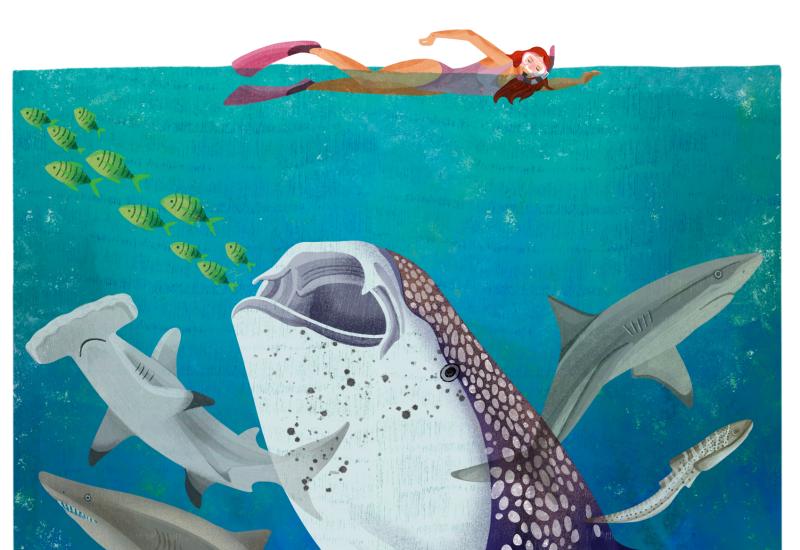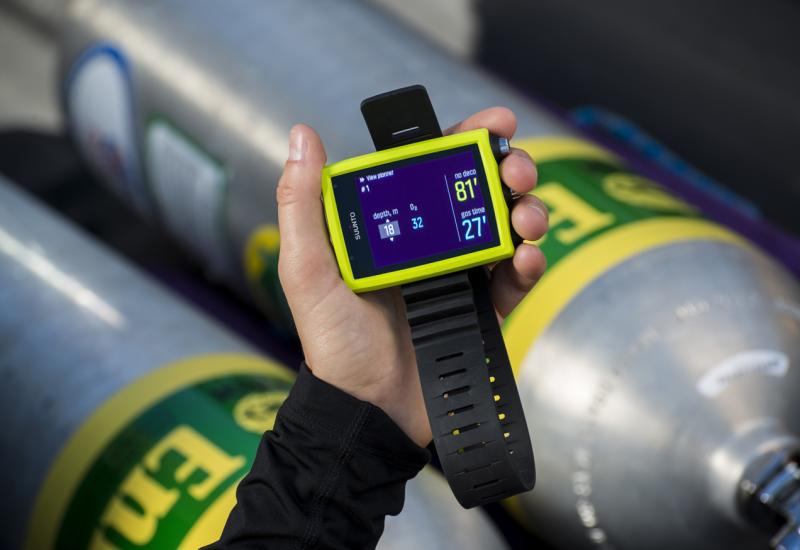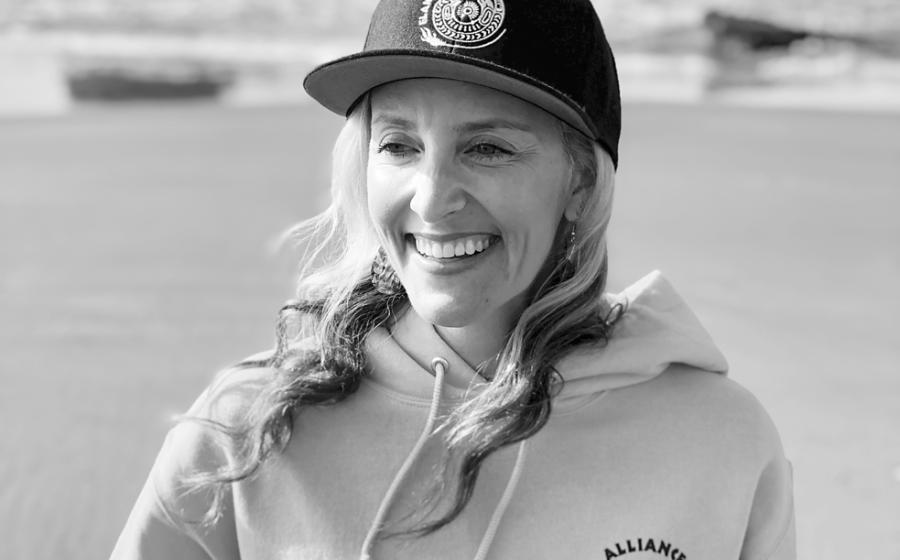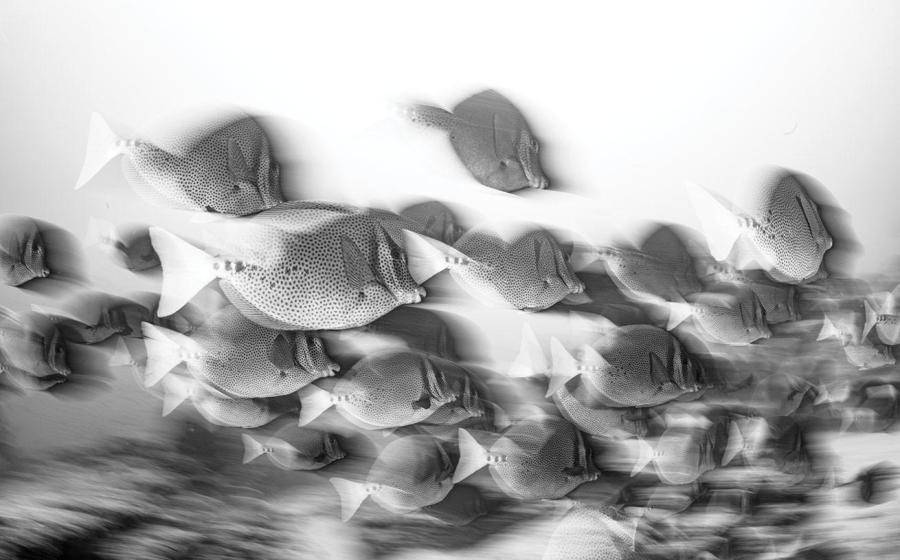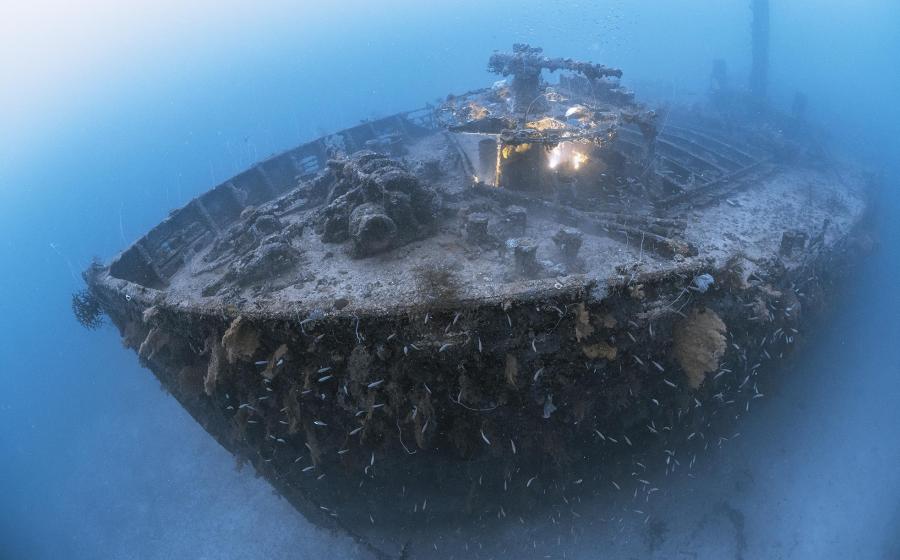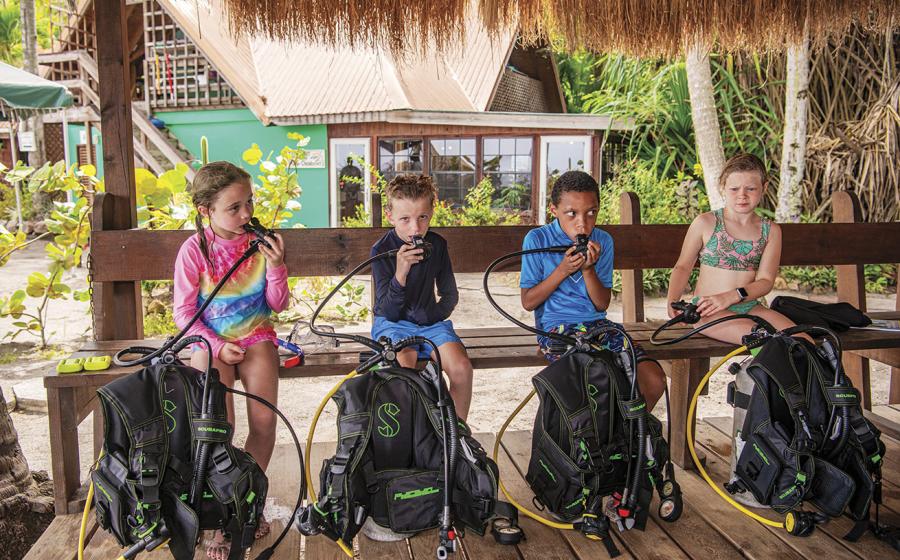Quarry Diving is More Popular than You May Think

Becky Kagan SchottAt Pennsylvania’s Dutch Springs, water clarity is so good at times that you can see leaves on the trees from 30 feet below.
Access. Access is the foundation of quarry culture. It’s why many quarries — or local lakes, springs, etc. — grow organically to have their own community of die-hards who, over time, become as acquainted with the quarry as they do with each other.
“Run the numbers,” says Britt Clark, an instructor based in Huntsville, Alabama. “If you go to, let’s say, the Caribbean, you can dive a few times a day for the week that you’re on vacation. That’s 15 dives a week, tops. Let’s say you can go to the islands two or three times a year — that’s still not more than 45 or so dives a year.”
Then consider if you dive your local quarry.
If you’re doing three dives a day and six per weekend, and that becomes 24 per month. That could easily become 72 dives in a summer.
“It adds up to far more experience,” Clark says.
For most divers, these kinds of numbers are possible because the local quarry is an easy weekend destination that’s a short drive away — and because it’s affordable.
“If you dive locally, you’re only spending for a weekend what you’d otherwise spend for an expensive dinner,” says Bill Mohney, instructor and manager of Divers Incorporated, the Ann Arbor, Michigan-based concession that runs the diving at White Star Quarry in Madison Township, Ohio. The quarry sits south of the Michigan-Ohio border, 90 minutes by car from both Ann Arbor and Cleveland.

Jennifer IdolLoch Low-Minn quarry in Athens, Tennessee, is stocked with paddlefish
Lower cost and less travel time also means less time for your skills to rust between dives.
“People who dive quarries stay up on their skills,” says Clay O’Daniel, an instructor with Central Coast Dive Center in Edgewood, Kentucky. “Typically, they will have been diving with their buddy all summer long. And when they do travel, they’re not trying to refresh the whole time.”
What’s more, divers who hang out around quarries on their weekends get to know each other.
Cookouts are common. A diver might show up with one group, but end up having hot dogs with another.
That shared sense of togetherness makes for a more supportive dive experience.
“You can trade a hot dog for a tank fill,” O’Daniel says of the friendly quarry culture.

Courtesy Windy Point ParkLake Travis reservoir is the hub of local diving near Austin, Texas
He adds, “It’s basically just a social event. You can go from group to group to group. It’s not hard at all to make friends. Everybody there has something in common.”
Clark agrees: “Sooner or later, everybody knows everybody. It’s a nice family situation.”
One big benefit of this is that divers are much more likely to give friendly feedback to someone they know — and that person is much more likely to receive it well.
Related Reading: What It's Like to Be a Scuba Instructor
“If a stranger tells you to put your mask strap inside your hood because it could otherwise slip off, you’re much more likely to just say, ‘Whatever,’ and ignore it,” Clark says. “But when a friend tells you, you’re more likely to think it’s a good idea.”
And around the quarry, the regulars tend to be friends, with most folks on a first-name basis.
“It’s not ‘Go tell that person to stop,’” Clark says. “It’s ‘Go tell Bob to stop.’ Nobody takes anything personally when you know everybody.”

Becky Kagan SchottA rebreather diver swims through a pump-house structure that used to keep the Dutch Springs quarry from flooding.
Moreover, divers can learn through experience simply by diving alongside someone with more logged dives.
“You hear the talk about someone being a good diver, and so folks want to dive with them to see if the rumors are true,” Clark says. “Because if they are, and if you pay attention and watch what someone does, chances are good you will learn something. It’s like chess. You learn the most by playing against someone who will beat you.”
Of course, not every quarry has the same type of everyone-knows-everyone culture Clark describes.
Some quarries and lakes see much larger weekend crowds, as is the case with Dutch Springs in Bethlehem, Pennsylvania, a 90-minute drive west from New York City, and an 80-minute drive north of Philadelphia. This destination, in large part because of its proximity to several large East Coast cities, sees 300 people every Saturday and Sunday in the summer.
“It’s not at all like diving on a boat where you’re with just 12 other people. You get the experience of this much larger community,” says Stu Schooley, owner of the park.
In this setting, it might take longer to tease out who the regulars are, but one upside to this much bigger community is that you’re more likely to meet a dive buddy who shares another mutual interest, be it motorcycles or RV camping.
Regardless of whether your local quarry is big or small, there is one greater truth to quarry diving.
“Quarries are everywhere,” Clark says. “If you get sick of one, all you have to do is go visit a different one next weekend.”

Becky Kagan SchottDutch Springs has many underwater attractions, including a jet suspended in the water column so that it appears to be flying.
Crazy for Quarries
Dutch Springs, PA
The premier attraction of this underwater park is the 29-seat Challenger airplane found midway in the water column, suspended by floats. Add to that a trolley, three Cessna airplanes, a fire truck, a World War II crane and much more. Plus, the site is also home to an aqua park with inflatable slides, trampolines and pyramids — as well as an aerial park with zip lines and a high-ropes course. dutchsprings.com
Lake Phoenix, VA
This park is a favorite certification spot for clear water that’s home to bluegill and bass fish, turtles and crawfish. Dive in to find a sunken helicopter, a plane and a collection of vans, buses and boats. On site, you’ll also find a paintball course, volleyball courts, and kayak and paddle-boat rentals. lake-phoenix.com

Becky Kagan SchottA photographer checks settings on a clear day while diving on “the island,” near the center of Dutch Springs.
White Star Quarry, OH
A sunken Frito-Lay truck, motorcycle and underwater graveyard — assembled from rejected headstones donated by a nearby monument company — are all highlights of this clear-water park with an average depth of 50 feet. But the biggest crowd-pleaser is what’s called the Enchanted Forest: submerged trees with gnome sculptures scattered throughout, plus tiny toy fairies hanging from branches. whitestarquarry.com
Blue Water Park, AL
New divers favor this quarry for the training platforms. Experienced divers like it for the mapped sunken attractions, including a fire truck, two sailboats, a school bus and artificial reefs that serve as habitat for bass and bream. Another bonus: Depths of the lake range from 4 to 140 feet. bluewaterparkal.com
Pennyroyal Scuba Center, KY
This 22-acre, clear-water quarry has a motley mix of underwater vehicles and sundry items, from vans and RVs to boats to bathtubs to washing machines — and even a UFO. Plus, the park offers a few quarry pastimes as well, including underwater basketball and bicycle riding. pennyroyalscuba.com

Jennifer IdolThe Giant Stride plies Lake Travis reservoir, near Austin, Texas.
Why Quarries and Lakes Build Stronger Divers
Quarry divers are accustomed to lower visibility.
“They don’t have the security blanket of being able to see everything 100 feet around them,” says Bill Mohney of White Star Quarry. These divers will not panic on low-vis dives in the ocean or any other environment.
Quarries tend to hold cold water.
Cold-water divers train while wearing gloves. If a diver can perform a task with limited dexterity, they certainly can do it with bare hands. “If you dive cold water, as many quarries are, you’re wearing a hood, gloves and more lead. Become comfortable with that amount of gear, and you can dive anywhere. If you get certified in warm water, you come home and it’s like learning to dive all over again. It’s like the difference between skiing powder and packed snow,” says Dutch Springs owner Stu Schooley.
In quarries, especially cold-water quarries, more planning is typically required than diving in warm water from a boat. More planning leads to a better-prepared diver.
Related Reading: How Your Fitness Impacts Diving
Quarries make you strong.
Unlike at most dive resorts, quarry divers are expected to schlep their gear to the entry point. Over time, this makes a diver physically stronger and more resilient.
“People learn to solve their own problems when diving in quarries because they have to,” says Huntsville, Alabama, instructor Britt Clark. The result is a much more self-reliant scuba diver.
Quarries can be silty.
This forces divers to focus more on their buoyancy and finning techniques. It will also help them develop good instincts. “Divers who don’t freak out when they can’t see their hand in front of their face are a lot more comfortable when conditions get churned up in the ocean. They’ve already experienced far worse,” says Suzi Brayman, assistant manager at Hall’s Diving Center in Marathon, Florida.
A diver who can appreciate and be entertained by the simple things, such as how light moves through a halocline, is someone who is going to love diving, no matter rain, no matter shine, no matter waves — no matter what.

